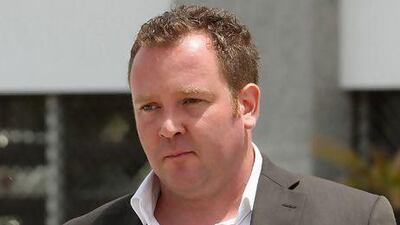DUBAI // British diplomats in the UAE are stepping up their use of Twitter and other social media to explain the standards of behaviour expected here.
A number of British residents and visitors have been involved in high-profile court cases involving alcohol and allegations of indecency.
Most recently, Briton Rebecca Blake appeared in court to appeal against a verdict that found her guilty of having sex in a taxi.
The embassies in Dubai and Abu Dhabi have for some time posted advice on their UAE website about the country's religious, cultural and social values and laws.
They also hold events such as tea parties on the residence lawns to spread the message and tell Britons about some considerations they need when living and working here.
Now the emphasis is switching towards social media. The missions already have Twitter and Facebook accounts, and Edward Hobart, the consul general to Dubai, has just acquired his own Twitter handle, @EdwardHobartCG.
"One of the things we're doing is more and more outreach to the community through social media," he said. "I've just got a Twitter account. Our Facebook page is pretty active but we're also using Twitter quite a bit.
"We need to keep reinforcing the messages about appropriate behaviour and respect for Emirati society. There needs to be recognition of the boundaries that are set, which are broad and wide and tolerant in this country - but remember that you are in this country.
"Things like social-media campaigns using Twitter are ways of reaching a newer group of people and reminding them it's illegal to drink and drive in the UK and it's illegal here.
"You should follow the laws here and know what the consequences are of not following those laws."
Mr Hobart said he was talking to Dubai Police to gain an understanding of how messages could be delivered jointly.
A number of cases involving Britons in the UAE have generated headlines around the world.
Last November, Blake and Conor McRedmond, from Ireland, were sentenced to three months in jail in Dubai after being convicted of having sex in the back of a taxi following a 10-hour drinking binge.
Their sentences were cut to two months by the Appeals Court.
In 2009, Charlotte Adams and Ayman Najafi spent a month in prison after an Emirati woman complained they were kissing in public in Dubai. The previous year, Michelle Palmer and Vince Acors were jailed for three months for having sex on Jumeirah Beach. Their sentence was suspended on appeal and they pair were deported.
"These stories are a theme that hit the news," added Mr Hobart. "The vast majority of people behave themselves, don't get into trouble and find this a great place to live."
The embassies say an estimated 100,000 Britons live in the UAE and more than a million visit every year.
The latest figures from the UK's Foreign and Commonwealth Office show that 201 British nationals were arrested in the Emirates in the year to March 31 last year.
The "Understanding the UAE" section of the missions' websites states: "Respecting local laws and customs can help you avoid getting into trouble."
It points out that sexual relationships outside marriage are illegal, open displays of affection are not tolerated and there is a zero-tolerance policy towards drink-driving.
Mr Hobart said Twitter could be useful in other ways, adding: "It's a fantastic communication tool in times of crisis and emergency when we need to get quick messages out.
"There was a case a few years ago when there was an earthquake off the coast of Chile. The way we contacted four British surfers who news outlets reported had been killed was through Twitter.
"There was still phone reception and they saw that we were reaching out. They tweeted back and said, 'We're here'."

